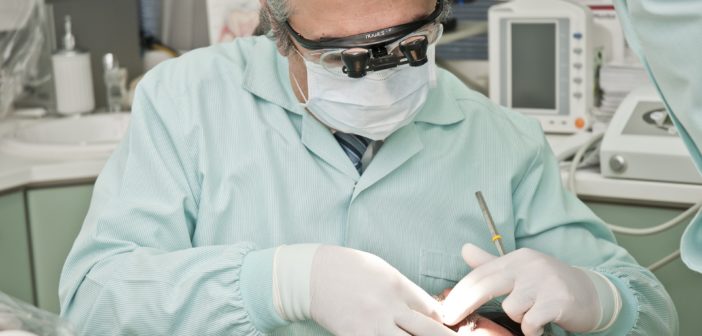Is it really necessary to see a dentist when you have the occasional toothache? Yes. Even what seems like a minor toothache to you actually is an important warning sign you’re in need of a dental appointment. Other seemingly minor warning signs that people ignore are bad breath, dry mouth, and irritated gums. If you experience any of the six signs below, then you should immediately schedule an appointment with a dentist.
1. You Haven’t Gone in a Year
As the saying goes, prevention is the best medicine. Seeing a dentist regularly prevents any serious oral health problems from developing, which means you don’t have to go through painful, scary procedures. It also decreases how much money you spend on dental health in the long run. Your dentist can catch other health problems early on, such as diabetes and Sjögren’s syndrome.
How often do you need to see a dentist? Babies should see a dentist when their first tooth grows. If a baby hasn’t grown their first tooth by age 1, parents still need to take the child to the dentist. From thereon, kids need to see a dentist every six months. Adults should schedule dentist appointments once or twice a year unless the dentist advises more frequent appointments due to dental problems.
2. Dry Mouth
Saliva plays a role in neutralizing acids and digesting food. If you don’t produce enough saliva, this can lead to cavities, infections, and other oral health problems. A dentist can find the cause behind your dry mouth and then recommend solutions to the problem. Sometimes, a non-oral health problem is behind dry mouth, such as diabetes. That’s why you shouldn’t try fixing a dry mouth on your own. You could end up overlooking a more serious health issue.
3. Tooth Pain or Sensitivity
Many people ignore the slight pain they feel when they drink cold or hot drinks brushing it off as normal. You should take tooth sensitivity and tooth pain seriously. It could be a sign of dental problems, such as tooth decay, enamel erosion, leaking fillings, or receding gums. Other possible causes of tooth sensitivity are brushing too hard, using tooth whitening products, and rinsing with a harsh mouthwash. If any of those causes are behind your tooth pain, it’s a good idea to address it.
4. Irritated Gums
Bleeding, swollen, sore, or otherwise irritated gums are symptoms of many different oral health problems. You need to see a dentist if you have persistent bleeding, swollen, sore, or irritated gums. Every once in a while, your gums may bleed when you brush or floss too hard. If it happens often, then there is usually a dental issue going on. Irritated gums could mean you have gingivitis or periodontitis, serious issues that need treatment or else they could result in tooth loss.
5. Stubborn Bad Breath
Bad breath that you’re not able to get rid of when brushing, flossing, and using mouthwash is usually a sign of an oral health problem. You should always see a dentist if you’re experiencing stubborn bad breath despite taking good care of your teeth and brushing your tongue. Possible causes behind bad breath are gum disease, tooth decay, infections, and cancer.
Some people aren’t aware that their breath smells bad. Although it might feel embarrassing, you should ask a family member or close friend whom you trust if your breath smells bad for the sake of ensuring good oral health. Or you could ask a dentist if you don’t feel comfortable enough asking a loved one.
6. Jaw Pain
Teeth grinding or clenching can cause jaw pain. Many people are unaware they grind their teeth while they sleep. Others know they clench their teeth when they’re angry or stressed. This is a bad habit that can break down the teeth over time and cause a wide array of dental problems, such as broken teeth, TMJ disorder, loose teeth, and enamel damage. Jaw pain can be a sign of infections too. Whenever you have jaw pain, it’s imperative to see a dentist to find out the cause.
If you experience any sort of pain or problem with the mouth, including the jaw, it’s time to visit the dentist. Even if you see a dentist once or twice a year, you should go in to see what the problem is if you experience any of the above symptoms. You want to catch a health issue early on to save yourself pain and money as well as to protect your teeth.




